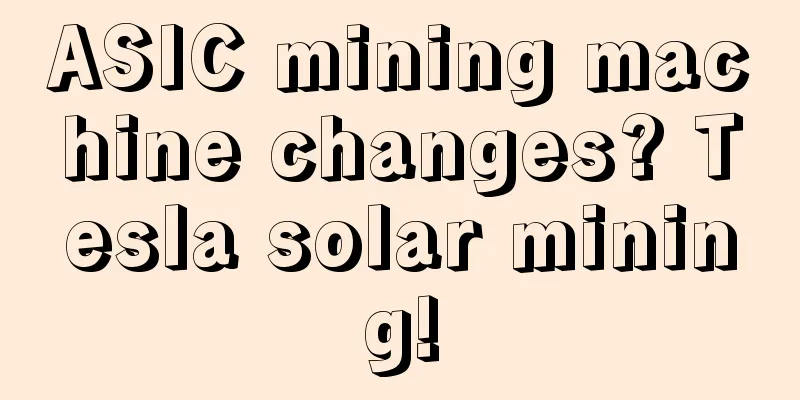Miner Extractable Value (MEV) sparks new round of debate, Princeton University professor puts forward five arguments

|
The debate over miner extractable value (MEV) and transaction ordering in the Ethereum community has heated up again due to a recent article by Ari Juels and his co-authors, and the tweetstorm that followed, and the debate often conflates issues that I believe should be kept separate. Therefore, building on my past articles, I will present 5 arguments that I hope will help clarify some concepts. Argument 1: Front-running hurts usersAmid the heated debate, the overarching point that is all too easily forgotten is that front-running reduces the value of markets and discourages participation. A world without so much front-running would be a better world (meaning less value extracted from users). Now, you could argue that front-running is unstoppable, or that we are unfortunately locked into more front-running than ever before, and these are plausible arguments. However, front-running is, at best, a necessary evil, and one that the community should seek to reduce. Argument 2: All else being equal, if front-running is to occur, trading sequencing should take place in a transparent market.Today’s Ethereum is dominated by front-running: miners can control the ordering of transactions within their own blocks, so miners can make trades (buys or sells) that are beneficial to them before users do. If order ordering is for selling, it might as well be sold transparently so that regular users (not just miners) can see what’s going on. Systems like Flashbots don’t cause the front-running problem, they exist to mitigate it. Argument 3: Some designs and protocols are better at resisting front-running, which is a good thingNot all protocols are created equal, and how much front-running can exist in a protocol will depend on how the protocol is designed. Therefore, when we evaluate a protocol, we should ask whether it increases or decreases the chances of front-running. This is not the only question to consider, but it should be a factor when evaluating new protocols or changes to existing ones. Argument 4: There is still a lot of research to be done on how to make systems more resistant to front-running, and how to make systems that resist front-running more practicalThere are still many unsolved problems about how to provide fair ordering. Current research is promising and it looks like some significant improvements can be found. It will be important to continue to advance this research and move more mature research into practice. Over time, our system will be able to resist front-running better and better. Argument 5: The worst thing we can do right now is to adopt a structure that increases front-running and lock ourselves into itFirst, don’t hurt others. Adopting new protocols that increase front-running, such as using “MEV auctions” will make the front-running problem worse, which is what we should avoid. At worst, this change will lock us into a world with a more advanced edge. This will cause immediate harm, but its worst effect will be to prevent the adoption of better, more resilient approaches. For a long time, the community will be dealing with front-running and working to reduce it. |
<<: Blockchain gives a big boost to China-Europe rail trade
Recommend
Zhou Xiaochuan: How far is the digital RMB?
In 2016, China's economy and finance faced a ...
Ravencoin Infographic Series
Ravencoin special topic on Wabi.com: http://www.w...
Former Google engineer develops blockchain-based operating system for banks
Rage Review : The blockchain industry has predict...
Will anonymous payment be popular? German mobile game manufacturers officially accept Bitcoin payments
Mobile game payment has always been an important ...
What kind of face of a woman indicates an unhappy marriage
People attach great importance to their marriage....
Estimation of Bitcoin computing power during the flood season in 2020: Countdown to capacity elimination, old mining machines may be completely withdrawn from the market
Since the Bitcoin block reward was halved in May,...
Well-known indicators suggest that gold may be approaching a short-term top. What should Bitcoin do?
Will the ongoing correlation make a collapse in g...
Microsoft re-enables Bitcoin payments, transaction fees and stability become big issues
This week, Microsoft stopped accepting Bitcoin pa...
Palmistry diagram: What does it mean when the wisdom line splits in the middle?
1. If your wisdom line splits in the middle and a...
Is it good for a woman to have horizontal lines on her nose?
Everyone likes a straight nose and a high bridge ...
What is the fate of people with multiple fingers?
Palmistry believes that people born with six fing...
Secret Planet invests $200 million to create an innovative "community ecological decentralized digital asset trading platform"
TCRS has been online for 6 months, with 102w+ glo...
Can gather wealth! Is it good to have a triangle at the end of the marriage line?
Is it good to have a triangle at the end of the m...
What kind of man is the most reliable?
What kind of man is the most reliable? In today&#...
What does the Seven Killings entering the Life Palace represent?
The Seven Killings Pattern is actually one of the...









